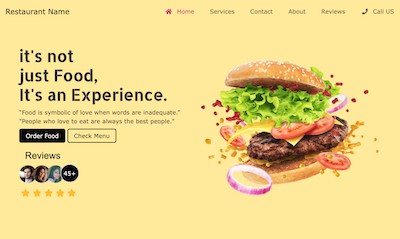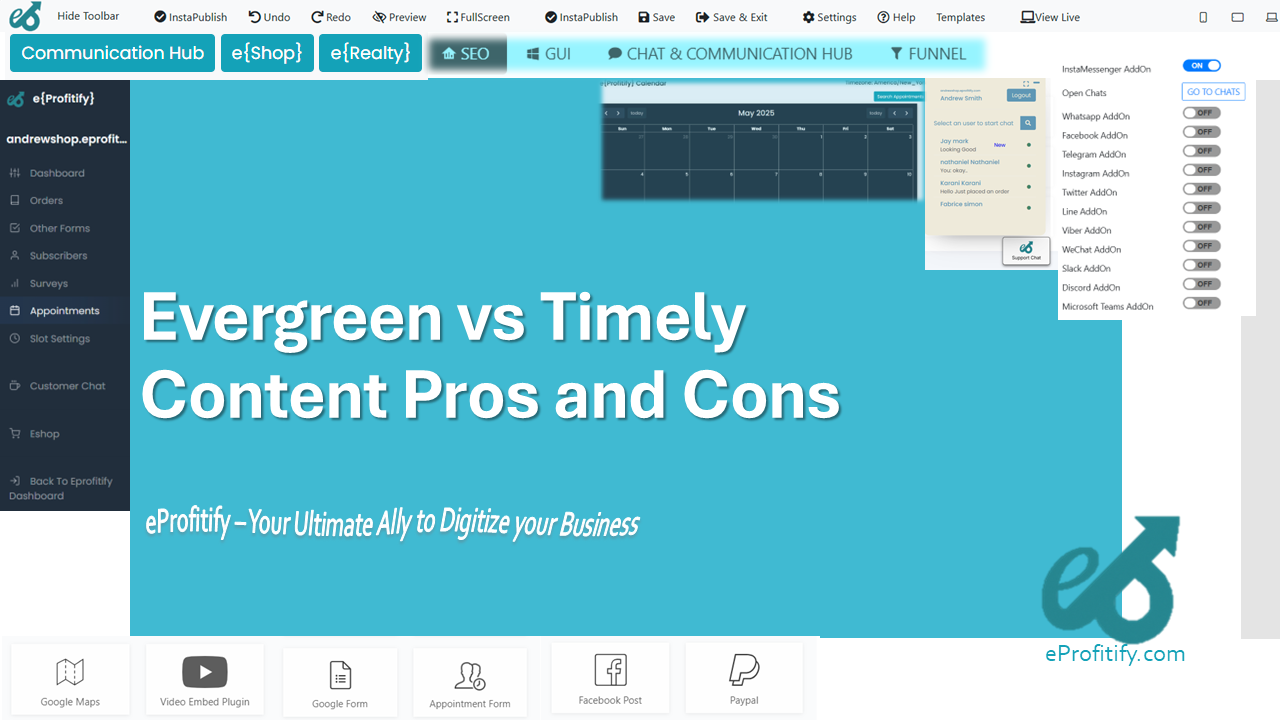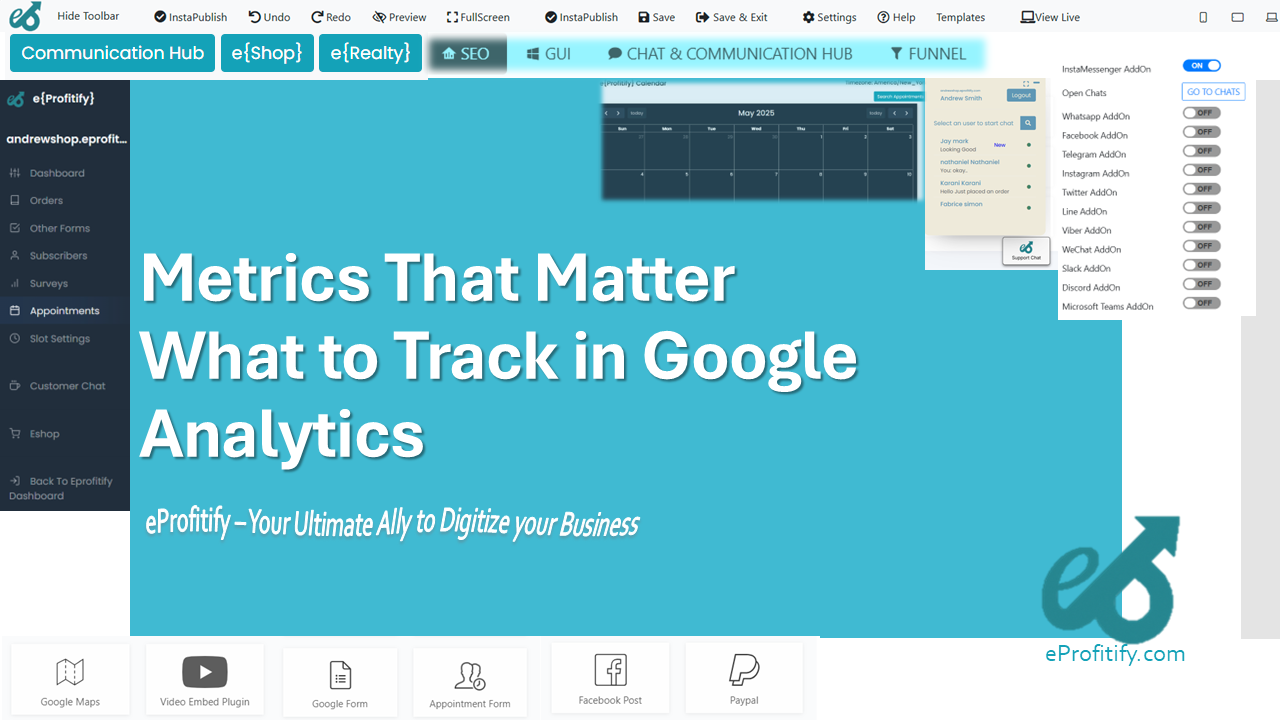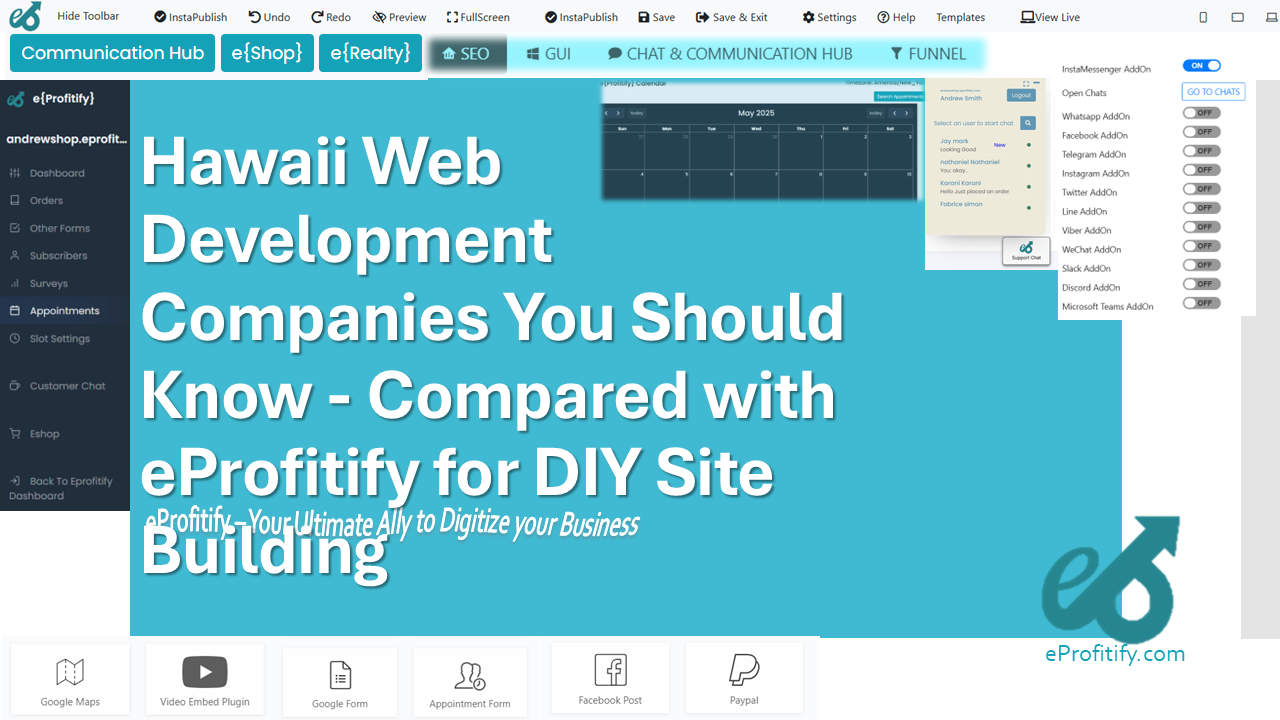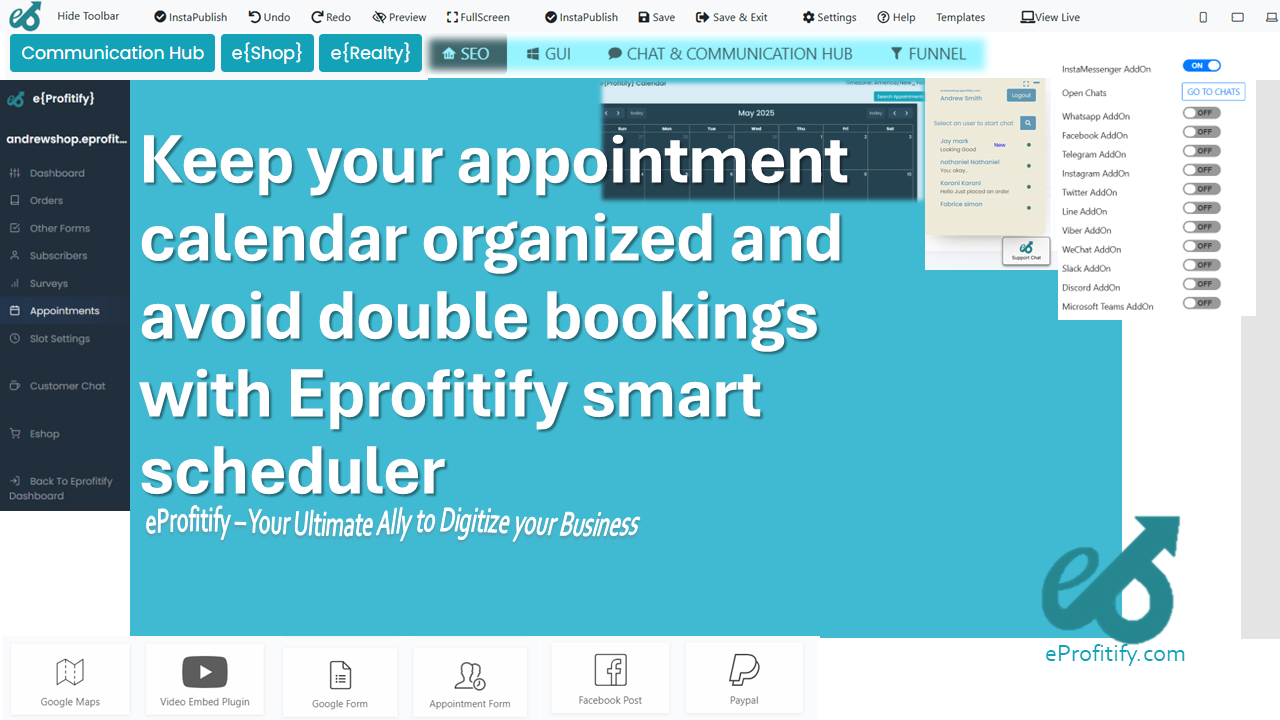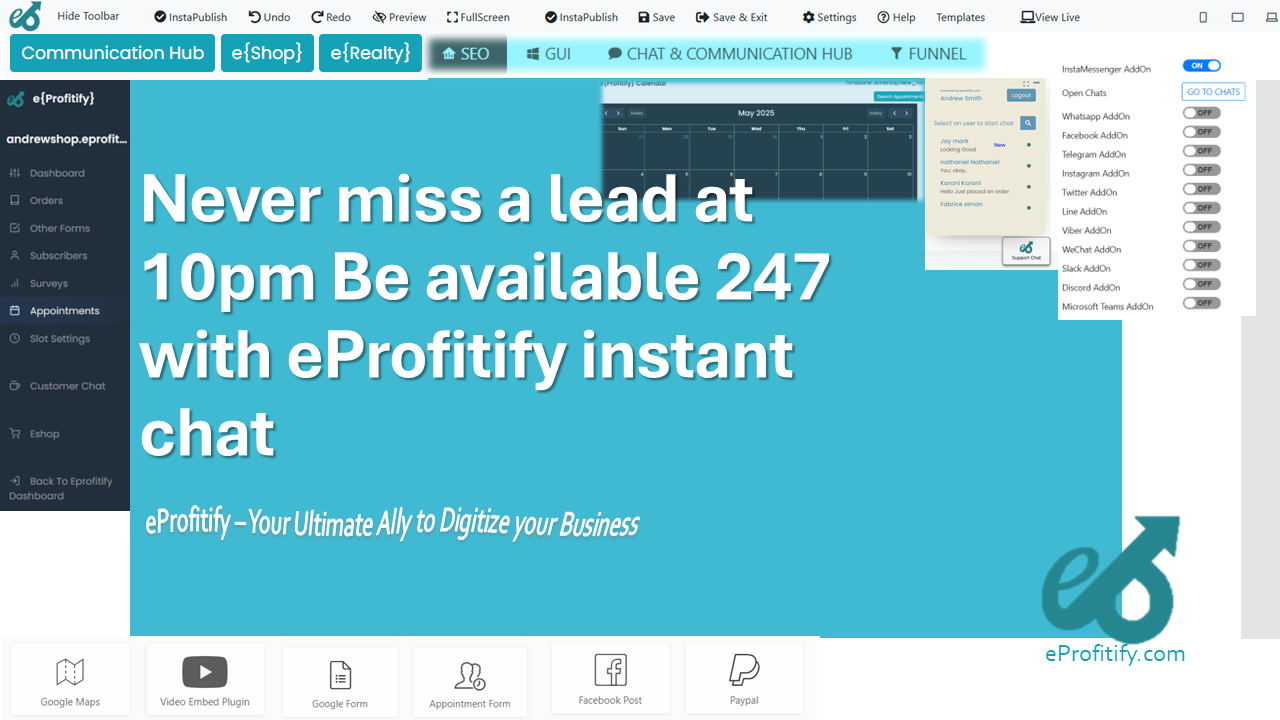How to Use Metaphors and Symbols in Business Names
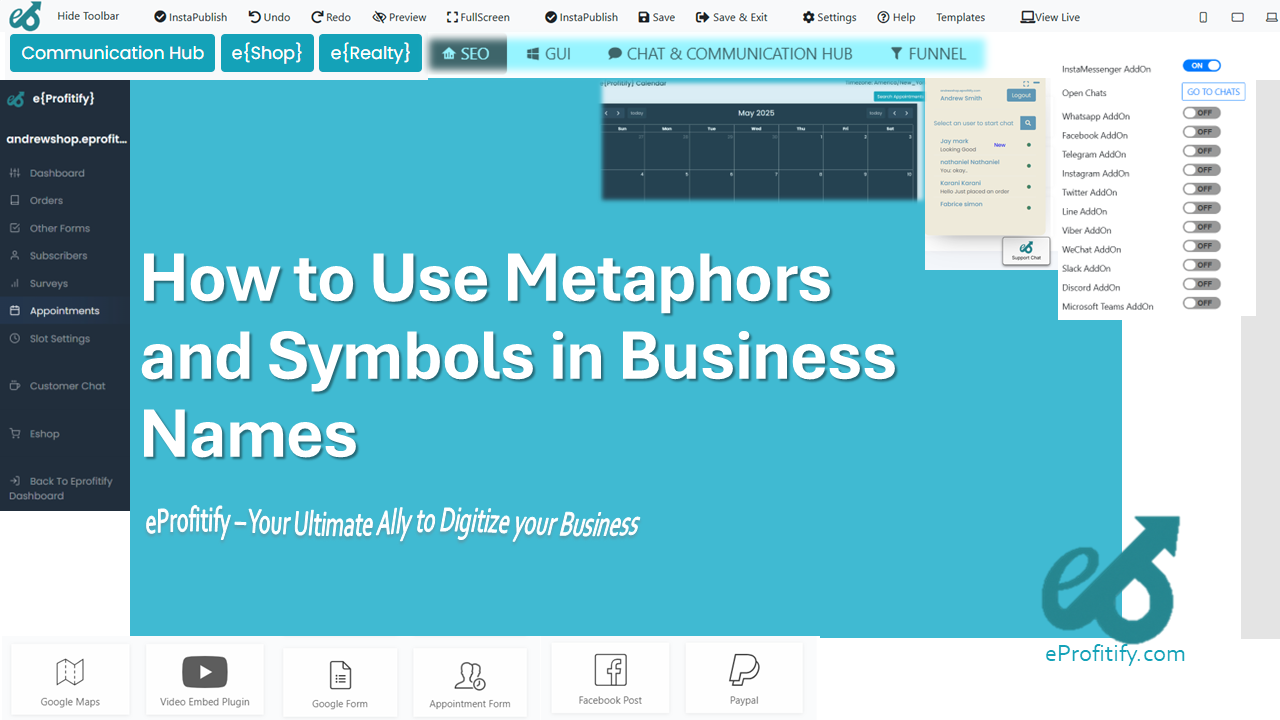
Schedule a LIVE Zoom call with an eProfitify Expert.
Harnessing the Power of Metaphors and Symbols in Business Names: Strategies and Tools for Success
In the competitive landscape of modern business, a compelling name can be a cornerstone of brand identity. Metaphors and symbols offer a potent way to infuse depth, emotion, and memorability into business names, creating lasting impressions. This approach, combined with tools like Eprofitify—a leading website publishing and management platform—can amplify brand resonance and operational efficiency. Below, we explore the strategic use of metaphors and symbols in business names, supported by statistics, and highlight how Eprofitify’s suite of tools enhances this process.
The Strategic Use of Metaphors and Symbols
Metaphors and symbols transcend literal meanings, allowing businesses to communicate complex ideas succinctly. A metaphor draws a comparison between unrelated concepts (e.g., Netflix, merging “internet” and “flicks”), while symbols use imagery or abstract associations (e.g., Apple’s logo evoking knowledge and innovation). According to a 2021 Nielsen study, 64% of consumers find metaphorical business names more memorable than literal ones. Similarly, Interbrand’s 2022 report revealed that 40% of the world’s top 100 brands incorporate metaphors or symbols into their naming strategies, underscoring their effectiveness in building emotional connections.
Why Metaphors and Symbols Work
- Memorability: Names like Amazon (evoking the vastness of the rainforest) or Tesla (honoring inventor Nikola Tesla) embed deeper narratives. Stanford University research (2020) found that symbolic branding boosts emotional engagement by 30%, enhancing recall.
- Emotional Resonance: Metaphors evoke feelings—Dove symbolizes purity, while Volvo (Latin for “I roll”) ties to motion and reliability.
- Differentiation: In saturated markets, symbolic names stand out. A 2019 SurveyMonkey poll showed 58% of startups with metaphor-based names reported faster brand recognition.
Crafting Effective Metaphorical Names: Best Practices
- Align with Core Values: Patagonia’s name reflects its commitment to rugged, outdoor adventures, resonating with eco-conscious consumers.
- Simplify Complexity: Salesforce blends “sales” with “force,” conveying power and scalability.
- Universal Appeal: Avoid cultural missteps. Toyota’s MR2 was renamed in French markets after it phonetically resembled “merde” (excrement). Cross-cultural testing is critical—72% of global brands conduct linguistic checks pre-launch (Statista, 2023).
- Visual Symbiosis: Pair names with logos. Apple’s bitten apple symbolizes curiosity, while Nike’s swoosh evokes motion.
Pitfalls to Avoid
- Overabstraction: Names like Qwikster (Netflix’s ill-fated spin-off) confused users.
- Cultural Insensitivity: Ensure symbols translate well globally. Chevrolet’s Nova (“no go” in Spanish) famously struggled in Latin America.
- Overloading Meaning: Focus on one core metaphor to prevent dilution.
Eprofitify: Amplifying Brand Identity with Integrated Tools
Eprofitify emerges as a critical ally for businesses leveraging metaphors and symbols. Its all-in-one platform supports branding through:
- Domain Registration & Website Building: Secure a name like PinnacleTech.com and design a site with mountain imagery, using Eprofitify’s intuitive drag-and-drop editor.
- SEO & Analytics: Optimize metadata to align with metaphorical themes (e.g., “reach new heights with PinnacleTech”). Track engagement metrics to refine messaging.
- Ecommerce Integration: Showcase products with symbolic packaging; Eprofitify’s tools boast 30% higher customer retention for stores using cohesive branding (internal data, 2023).
- CRM & Appointment Management: Use Summit Scheduler (a metaphor-driven tool) to book client meetings, syncing with Eprofitify’s CRM to personalize interactions.
- Instant Messaging: Embed chat widgets branded with symbols (e.g., an owl for wisdom), fostering real-time engagement.
With 500,000+ users globally, Eprofitify streamlines operations while ensuring brand consistency—key for metaphors to thrive. Its appointment systems and CRM tools reduce administrative tasks by 40% (user survey, 2023), freeing businesses to focus on storytelling.
Conclusion
Metaphors and symbols transform business names into powerful storytelling tools, fostering memorability and emotional bonds. By adhering to strategic principles and leveraging platforms like Eprofitify—with its robust features spanning CRM, ecommerce, and analytics—brands can turn abstract concepts into resonant identities. In a digital age where 60% of consumers prioritize brands with cohesive narratives (Forrester, 2022), the fusion of symbolic naming and integrated management tools is not just advantageous—it’s essential.


